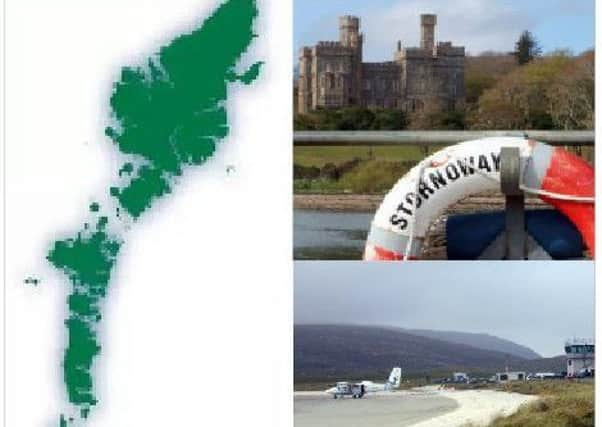Comhairle welcomes Boundary Commission review


The Commission is also to review the electoral arrangements for Argyll and Bute Council, Highland Council, North Ayrshire Council, Orkney Islands Council and Shetland Islands Council, who, along with the Comhairle, are the councils specified in the Islands (Scotland) Act.
The Islands legislation allows for use of one or two member wards in addition to the current multi-member wards, where a ward includes an inhabited island.
Advertisement
Hide AdAdvertisement
Hide AdConsultation with the island councils and the public is planned for spring and summer 2019, and The Commission aims is to submit proposals to Scottish Ministers by spring 2021 so that, if accepted, they come into force for the 2022 local government elections.
The review will result in recommendations for the number of councillors on each council and the number and boundaries of wards for the election of those councillors.
The Comhairle has welcomed the move, and in a statement said:
“The last Comhairle decided that there should be less Councillors and produced a model featuring 26 as opposed to the current 31.
Advertisement
Hide AdAdvertisement
Hide Ad“The current Comhairle will further consider the matter. In the meantime, the Islands Act came into being which allows the Comhairle to vary from the three/four councillors per ward.”
Na h-Eileanan an Iar SNP MSP Alasdair Allan also welcomed the announcement, and said:
“Since 2007, council wards in Scotland have been represented by either 3 or 4 councillors. In some areas, this has led to wards that cover huge areas and take in a variety of communities. One of the most obvious examples of a need for reviewed boundaries is in Barra, Vatersay, Eriskay and South Uist, which is the only ward in the Western Isles separated by a ferry journey.
“There will be a range of views on how we can ensure that council wards in the Western Isles are more representative of the communities they encompass and I hope as many islanders as possible engage with the consultation.”
Advertisement
Hide AdAdvertisement
Hide AdIn completing reviews, The Commission consults with councils and the public before reporting to Scottish Ministers. The Commission has confirmed that under current legislation Ministers can accept or reject its proposals or direct The Commission to conduct a further review. The Commission does not have statutory powers to impose a new structure of wards.
If The Commission’s proposals are accepted by Ministers an Order is laid in the Scottish Parliament to bring them into legislative effect.
Scottish Ministers did not accept The Commission’s recommendations for na h-Eileanan an Iar when reported in 2016 because of the pending Islands legislation.
The Commission has also confirmed that the process for implementing its recommendations, including the role of Ministers and the Parliament, was one of the issues considered in the Scottish Government’s consultations on electoral reform in 2018, and changes to the process may also be forthcoming.